Home>Garden Essentials>What Do Lawn Care Companies Spray On Grass
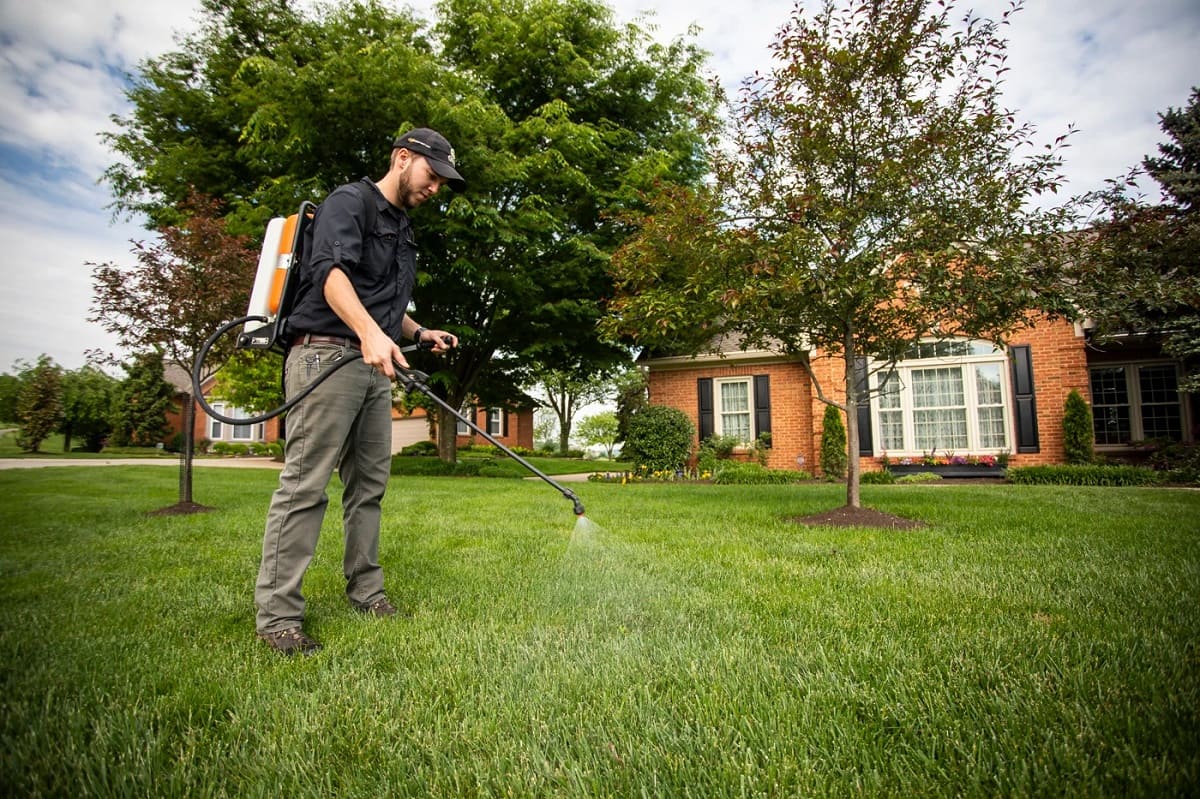

Garden Essentials
What Do Lawn Care Companies Spray On Grass
Modified: October 18, 2024
Looking for expert lawn care companies? Discover what garden specialists spray on grass to keep it healthy and thriving. Enhance your garden's beauty today!
(Many of the links in this article redirect to a specific reviewed product. Your purchase of these products through affiliate links helps to generate commission for Storables.com, at no extra cost. Learn more)
Introduction
Welcome to the world of lawn care, where an array of products and sprays are utilized to keep your grass looking lush and healthy. As a homeowner or gardener, you may be curious about what exactly is being sprayed on your lawn by professional lawn care companies. In this article, we will delve into the common types of lawn care sprays that are used and shed light on their purposes and effects.
Understanding the products used in lawn care is essential for those who wish to maintain a beautiful and vibrant lawn. The proper use of lawn care sprays can lead to improved grass growth, weed control, and protection against pests and diseases. However, it’s crucial to strike a balance between effective lawn care and the potential risks associated with chemical sprays.
Before we dive into the different types of lawn care sprays, it’s important to note that there are various factors to consider when selecting the right products for your lawn. Factors such as climate, grass type, and specific lawn issues play a role in determining the appropriate treatments. Additionally, it’s worth exploring alternative options to chemical sprays, as there are organic and eco-friendly alternatives available that can provide effective results.
So, whether you’re a homeowner looking to better understand the products being used on your lawn or a gardener seeking to improve your lawn care practices, this article will serve as a comprehensive guide to the various lawn care sprays utilized by professionals and the alternatives to consider.
Key Takeaways:
- Choose lawn care sprays based on your lawn’s needs, safety, and environmental impact. Consider organic alternatives and consult professionals for effective and responsible lawn care.
- Incorporate natural alternatives like organic fertilizers, biological controls, and proper lawn maintenance to promote a healthy and eco-friendly lawn. Seek expert guidance for tailored solutions.
Read more: What Do Most Lawn Care Companies Charge?
Understanding Lawn Care Products
Before we delve into the specific types of lawn care sprays, it’s important to have a basic understanding of the different products commonly used in lawn care. These products are designed to address various lawn issues and promote healthy grass growth. Let’s take a closer look at some of the key components of lawn care products.
Fertilizers: Fertilizers are essential for providing your lawn with the necessary nutrients to thrive. They typically contain a combination of nitrogen (N), phosphorous (P), and potassium (K), known as NPK. These nutrients support plant growth, root development, and overall vigor. Fertilizers can be either organic or synthetic, each with its own advantages and considerations.
Herbicides: Herbicides are used to control and eliminate weeds in the lawn. They work by targeting and killing unwanted plants while minimizing damage to your grass. Herbicides can be selective, meaning they kill specific types of weeds, or non-selective, which means they kill all vegetation they come into contact with. It’s important to apply herbicides carefully to avoid damaging desirable plants.
Insecticides: Insecticides are used to combat various lawn pests, such as grubs, ants, and beetles. These products come in many forms, including granules, sprays, and systemic treatments. Insecticides may target specific pests or have a broad-spectrum approach to control a wide range of insects. When using insecticides, it’s essential to follow the instructions carefully and consider the potential impact on beneficial insects.
Fungicides: Fungicides are used to prevent and control fungal diseases that can impact the health and appearance of your lawn. These products work by inhibiting the growth and spread of fungal pathogens. Fungicides are particularly useful in regions with high humidity or during periods of excessive moisture, which can create favorable conditions for the development of fungal diseases.
Other Lawn Care Products: In addition to the above, there are other specialized products that may be used in lawn care, depending on your specific needs. These may include growth regulators to control the height and density of the grass, wetting agents to improve water penetration and distribution, and pH adjusters to balance the soil’s acidity levels.
It’s important to note that while these lawn care products have their benefits, they should be used judiciously and in accordance with the manufacturer’s instructions. Overuse or misuse of these products can have adverse effects on your lawn and the environment. When in doubt, it’s always best to consult with a professional lawn care company for guidance and recommendations.
Common Types of Lawn Care Sprays
When it comes to maintaining a healthy and vibrant lawn, there are several types of sprays that professional lawn care companies commonly use. These sprays are designed to address specific lawn issues and provide the necessary nutrients and protection. Let’s explore some of the most common types of lawn care sprays:
- Synthetic Fertilizers: Synthetic fertilizers are widely used in lawn care to provide essential nutrients to the grass. These fertilizers come in various formulations and release rates, allowing for precise nutrient delivery. Some synthetic fertilizers are quick-release, providing an immediate boost to the grass, while others are slow-release, releasing nutrients gradually over time. The key nutrients found in synthetic fertilizers are nitrogen (N), phosphorus (P), and potassium (K).
- Pre-Emergent Herbicides: Pre-emergent herbicides are used to prevent the germination of weed seeds in the lawn. These sprays form a barrier on the soil surface, inhibiting the growth of weed seedlings. Pre-emergent herbicides are typically applied in early spring or fall, before weed seeds have a chance to sprout. They are an effective means of weed control and can help in reducing future weed infestations.
- Post-Emergent Herbicides: Post-emergent herbicides are used to control and eliminate existing weeds in the lawn. These sprays are applied directly to the leaves of the weeds and work by either disrupting the weed’s growth or killing it outright. Post-emergent herbicides can be selective, targeting specific types of weeds, or non-selective, which means they will kill any vegetation they come into contact with.
- Insecticides and Pesticides: Insecticides and pesticides are used to control common lawn pests, such as grubs, ants, and chinch bugs. These sprays can be applied as a preventive measure or to treat existing pest problems. Insecticides work by targeting the specific pests, either by direct contact or ingestion, and disrupting their life cycle. It’s important to use insecticides judiciously and follow the instructions to ensure effective pest control while minimizing environmental impact.
- Fungicides: Fungicides are used to prevent and control fungal diseases in the lawn, such as brown patch or dollar spot. These sprays work by inhibiting the growth and spread of fungal pathogens. Fungicides can be preventive, applied before disease symptoms appear, or curative, applied after disease symptoms are present. It’s important to identify the specific fungal disease affecting your lawn and choose the appropriate fungicide for effective control.
When using these lawn care sprays, it’s crucial to follow the instructions provided by the manufacturer and consider the potential impact on the environment and beneficial organisms. Overuse or improper application of these sprays can lead to detrimental effects on your lawn’s health and the surrounding ecosystem. For best results and to ensure safe and effective use, it’s recommended to consult with a professional lawn care company.
Synthetic Fertilizers
Synthetic fertilizers are commonly used in lawn care to provide essential nutrients that promote healthy grass growth. These fertilizers are manufactured using a combination of chemically synthesized compounds and minerals. They are designed to deliver specific ratios of nitrogen (N), phosphorus (P), and potassium (K), known as NPK, which are key nutrients required for plant development and vigor.
One of the benefits of synthetic fertilizers is their immediate and predictable effect on the grass. They break down quickly, making the nutrients readily available to the plants. This rapid release of nutrients can lead to quick greening and improved growth rates in the grass. Furthermore, synthetic fertilizers can be tailored to the specific needs of the lawn, allowing for precise control over nutrient delivery.
However, the use of synthetic fertilizers has raised concerns in recent years, mainly due to their potential impact on the environment. Excessive or improper use of synthetic fertilizers can result in nutrient runoff, which can contaminate water bodies and contribute to the formation of harmful algal blooms. In addition, continual reliance on synthetic fertilizers can lead to nutrient imbalances in the soil and may reduce the soil’s natural fertility over time.
To mitigate these concerns, it’s important to follow best practices when using synthetic fertilizers in lawn care:
- Proper application: Apply fertilizers according to the manufacturer’s recommended rates and schedules. Avoid over-application, as excess nutrients can be wasted and contribute to environmental pollution.
- Timing: Apply fertilizers during the appropriate season and when the grass is actively growing. This ensures that the nutrients are utilized by the plants efficiently and minimizes the risk of runoff.
- Water management: Water the lawn immediately after applying fertilizers to help the nutrients penetrate the soil. Proper irrigation practices can also help minimize nutrient runoff.
- Soil testing: Periodically test your soil to determine its nutrient needs. This will allow you to apply fertilizers only when necessary, avoiding unnecessary nutrient applications.
- Consider organic alternatives: Explore organic fertilizers that are derived from natural sources, such as compost, bone meal, or fish emulsion. These alternatives provide nutrients in a slow-release form, reducing the risk of nutrient runoff.
While synthetic fertilizers can be effective in promoting healthy grass growth, it’s important to use them responsibly and consider the potential environmental impact. By following proper application practices and considering organic alternatives, you can maintain a beautiful lawn while minimizing harm to the environment.
Herbicides and Weed Killers
Herbicides and weed killers play a crucial role in maintaining a weed-free lawn. They are specifically designed to control and eliminate unwanted weeds that compete with grass for nutrients, water, and sunlight. There are various types of herbicides available, each targeting different types of weeds. Let’s take a closer look at herbicides and weed killers commonly used in lawn care.
Selective Herbicides: Selective herbicides are formulated to target specific types of weeds while leaving the grass unharmed. These herbicides are ideal for controlling broadleaf weeds like dandelions, clover, and chickweed, which tend to compete with grass and spoil its appearance. Selective herbicides contain active ingredients that disrupt the growth and development of targeted weeds, leading to their eventual demise.
Non-Selective Herbicides: Non-selective herbicides, on the other hand, are designed to kill any vegetation they come into contact with. These herbicides are commonly used for spot treatments or when dealing with extensive weed infestations where complete eradication is necessary. Non-selective herbicides are effective at controlling various types of weeds, including grassy weeds and broadleaf weeds. However, caution must be exercised when applying non-selective herbicides to avoid damaging desirable plants.
When using herbicides and weed killers in lawn care, it’s important to follow these guidelines:
- Identify the Weed: Properly identify the type of weed before applying any herbicides to ensure it is effectively targeted. Different weeds may require different herbicides.
- Read and Follow Instructions: Carefully read the label instructions and follow the recommended dosage and application guidelines provided by the manufacturer. This includes properly diluting the herbicide if necessary and using appropriate protective equipment.
- Timing of Application: Apply herbicides during optimal periods when the weeds are actively growing. This improves the herbicide’s effectiveness and minimizes possible damage to the grass.
- Avoid Drift: Take precautions to prevent herbicide drift, as it can inadvertently damage nearby plants or sensitive areas. Apply herbicides on calm days and avoid spraying when there is a chance of wind.
- Spot Treatment: For minor weed problems, spot treatment with selective herbicides can be effective in controlling specific weeds without harming the entire lawn.
- Post-Emergent vs. Pre-Emergent: Understand the difference between post-emergent and pre-emergent herbicides. Post-emergent herbicides are applied to existing weeds, while pre-emergent herbicides are used as a preventive measure to control weed seeds before they germinate.
- Consider Integrated Weed Management: Incorporate cultural practices such as proper mowing, regular watering, and adequate fertilization to promote a healthy lawn, which can help reduce weed growth and reliance on herbicides.
Remember, using herbicides should be done with caution and in moderation. Overuse or improper application of herbicides can harm not only the targeted weeds but also beneficial insects, pollinators, and the environment. If you are uncertain about selecting and applying herbicides, seek advice from a professional lawn care company to ensure effective and safe weed control for your lawn.
Lawn care companies often spray a combination of fertilizers, herbicides, and pesticides on grass. These products help promote healthy growth, control weeds, and prevent pests. It’s important to follow the instructions and safety guidelines when using these products.
Insecticides and Pesticides
Insecticides and pesticides are crucial tools in combating lawn pests and protecting the health and vitality of your grass. These products are specifically designed to target and control a wide range of insects and pests that can cause damage to your lawn. Let’s explore the different types of insecticides and pesticides commonly used in lawn care.
Contact Insecticides: Contact insecticides are designed to kill pests upon direct contact. These insecticides work by interfering with the nervous system of the insects, leading to their eventual demise. Contact insecticides are effective in controlling pests such as ants, beetles, and caterpillars that are present on the lawn’s surface or in the thatch layer. However, they may have limited impact on hidden or underground pests.
Systemic Insecticides: Systemic insecticides are absorbed by the plants and transported throughout their tissues, making them effective against pests that chew on leaves or suck plant sap. Once ingested by the pests, systemic insecticides disrupt their physiological processes and contribute to their control. These insecticides are particularly useful against insects like grubs, aphids, and whiteflies, as they target the pests from the inside out.
Granular Insecticides: Granular insecticides are solid pellets or granules that are spread over the lawn using a spreader. They typically release the insecticide slowly over time, providing a longer-lasting effect. Granular insecticides are easy to apply and are ideal for treating larger areas. They can be effective in controlling pests like chinch bugs, fleas, and ticks.
Biological Controls: Biological controls involve the use of beneficial insects, nematodes, or microbial agents to control lawn pests naturally. For example, ladybugs can be introduced to control aphids, while nematodes can target grubs. Utilizing biological controls can be an eco-friendly approach to pest management, reducing the need for chemical insecticides.
When using insecticides and pesticides in lawn care, it’s important to consider the following guidelines:
- Targeted Application: Identify the specific pest causing damage to your lawn and use the appropriate insecticide or pesticide that targets that particular pest.
- Use as a Last Resort: Consider using insecticides and pesticides as a last resort when other pest management strategies, such as cultural practices or biological controls, have been unsuccessful.
- Follow Instructions: Read and carefully follow the instructions provided by the manufacturer. This includes proper dosage, application methods, and any necessary safety precautions.
- Limit Exposure: Apply insecticides and pesticides during periods when there is minimal risk of exposure to humans, pets, and beneficial insects. Avoid applying near water sources or during windy conditions that may cause drift.
- Integrated Pest Management (IPM): Consider implementing an Integrated Pest Management approach, which combines various pest control strategies to minimize reliance on chemical insecticides and pesticides.
By using insecticides and pesticides responsibly and judiciously, you can effectively manage pest problems in your lawn while minimizing the potential harmful effects on the environment and beneficial organisms. If you are unsure about which insecticides or pesticides to use or how to apply them, consult with a professional lawn care company for expert guidance.
Fungicides
In lawn care, fungicides are a vital tool for preventing and controlling fungal diseases that can negatively impact the health and appearance of your grass. Fungicides are specifically formulated to target and inhibit the growth of fungal pathogens, helping to keep your lawn disease-free. Let’s explore the key aspects of fungicides and how they can be effectively used in lawn care.
Types of Fungicides: Fungicides can be classified into two main types: preventative and curative. Preventative fungicides are applied prior to the appearance of disease symptoms, serving as a protective barrier on the grass blades and leaves. Curative fungicides, on the other hand, are applied after disease symptoms are visible, aiming to control and suppress the progression of the disease.
Fungicide Application: The timing and frequency of fungicide application may vary depending on the specific fungal disease and environmental conditions. It’s important to identify the particular disease affecting your lawn so that you can choose the right fungicide and apply it at the appropriate time. Consulting with a lawn care professional can help determine the most effective treatment plan for your lawn.
Application Technique: Fungicides can be applied through various techniques, including liquid sprays, granules, or granular spreaders. It’s essential to follow the manufacturer’s instructions regarding proper dosage, mixing, and application methods. Additionally, ensure even coverage and target the affected areas to maximize the fungicide’s efficacy.
Considerations and Safety: When using fungicides, it’s crucial to prioritize safety and environmental considerations. Follow all safety precautions outlined by the manufacturer, including wearing protective gear and avoiding contact with the skin or eyes. Be mindful of environmental factors such as air temperature, humidity, and wind speed, as they can affect the effectiveness and potential drift of the fungicide.
Integrated Disease Management: Integrating cultural practices with fungicide use can help manage fungal diseases more effectively. Practices such as proper lawn maintenance, regular mowing, appropriate irrigation, and improving air circulation can all contribute to keeping your lawn healthy and less susceptible to diseases. Additionally, removing and properly disposing of diseased plant debris can help prevent the spread and recurrence of fungal infections.
Responsible Use: While fungicides are effective in controlling fungal diseases, it’s important to use them responsibly. Overuse or improper application may lead to resistance in fungal pathogens and potential harm to beneficial organisms. Limit fungicide usage to only when necessary, and consider organic or alternative methods for disease prevention and control.
Fungicides are a valuable tool in maintaining a disease-free lawn, but they should be part of a comprehensive lawn care plan that includes proper maintenance and cultural practices. Regular monitoring of your lawn for signs of disease is crucial, and early intervention can prevent the spread and severity of fungal infections. If you have concerns or are unsure about the appropriate fungicide to use, consulting with a lawn care professional can provide expert guidance tailored to your specific lawn care needs.
Factors to Consider When Choosing Lawn Care Sprays
Choosing the right lawn care sprays is essential for maintaining a healthy and vibrant lawn. With an abundance of products available on the market, it’s important to consider several factors before making a selection. By taking these factors into account, you can ensure that the sprays you choose are effective, safe, and tailored to your lawn’s specific needs. Let’s explore the key factors to consider when choosing lawn care sprays:
- Lawn Type and Conditions: Consider the type of grass you have and its specific requirements. Different grass species may have varying tolerances to certain products or may require specific nutrients and treatments. Additionally, assess the current condition of your lawn, including soil health, pH levels, and any existing issues such as weed or pest infestations.
- Lawn Issues: Identify the primary issues you are facing in your lawn, such as weed control, pest management, nutrient deficiencies, or disease prevention. Understanding your specific lawn problems will help you select the appropriate sprays that target and address those issues effectively.
- Safety: Consider the safety of the sprays you choose, both for you and the environment. Look for products that are labeled as safe for humans, pets, and beneficial organisms like pollinators. Read the product labels carefully and follow all safety precautions and guidelines provided by the manufacturer.
- Targeted Action: Determine whether you need sprays that have broad-spectrum action or those that target specific issues. Some products may offer a combination of benefits, such as weed control and fertilization, while others may have a more focused purpose. Assess your priorities and choose sprays that align with your specific needs.
- Application Method: Consider the ease of application and the equipment required for applying the sprays. Some products may be applied using a sprayer or spreader, while others may come in ready-to-use formulas. Choose sprays that are convenient for your specific lawn care routine and equipment availability.
- Budget: Evaluate the cost-effectiveness of different sprays. Some products may be more expensive upfront but provide long-lasting effects or offer multiple benefits. Consider the value and long-term impact when comparing products based on their costs.
- Eco-Friendliness: If environmental impact is a concern for you, explore eco-friendly options such as organic or natural sprays. These alternatives utilize ingredients derived from natural sources and minimize harm to the environment while still effectively addressing lawn care needs.
Remember, every lawn is unique, and there is no one-size-fits-all solution when it comes to choosing lawn care sprays. Tailor your selection based on your lawn’s specific needs, consider safety and environmental factors, and weigh the cost-effectiveness of different options. When in doubt, consult with a professional lawn care company for expert advice and guidance tailored to your lawn’s specific requirements.
Alternatives to Chemical Lawn Care Sprays
For those seeking more natural and eco-friendly options for lawn care, there are several alternatives to traditional chemical sprays. These alternatives provide effective solutions for maintaining a healthy lawn while minimizing the potential risks associated with synthetic pesticides and herbicides. Let’s explore some of the alternative approaches to consider:
- Organic Fertilizers: Organic fertilizers, derived from natural materials like compost, manure, or bone meal, are excellent alternatives to synthetic fertilizers. They release nutrients slowly, providing a long-lasting and sustainable source of nutrition for the grass. Organic fertilizers enrich the soil, improve its structure, and enhance microbial activity, ultimately promoting healthy grass growth.
- Biological Controls: Biological controls involve the use of beneficial insects, nematodes, or microbial agents to control pests naturally. For example, introducing ladybugs or praying mantises can help control aphids, while using nematodes can target grubs. Incorporating biological controls into your lawn care routine reduces reliance on chemical insecticides and pesticides.
- Compost Tea: Compost tea is a natural liquid fertilizer made from steeping compost in water. It contains beneficial microorganisms and nutrients that can improve soil health and provide essential elements to the grass. Applying compost tea as a soil drench or foliar spray can help enhance the lawn’s overall vitality and resistance to diseases.
- Proper Lawn Maintenance: Maintaining a healthy lawn through proper cultural practices can significantly reduce the need for chemical sprays. This includes regular mowing at the appropriate height, proper watering to avoid over or under watering, and ensuring adequate soil aeration for optimal root growth. A well-maintained lawn is naturally more resistant to pests, diseases, and weeds.
- Manual Weed Removal: Instead of relying solely on herbicides, consider manual weed removal techniques such as hand-pulling or using weed tools. Regularly inspect your lawn for weeds and remove them as soon as they appear. This approach may require more effort initially, but it can limit the need for herbicides and promote a healthier, weed-free lawn.
- Proper Watering and Drainage: Establishing a proper watering schedule and ensuring adequate drainage can prevent excessive moisture that can lead to fungal diseases. Water deeply and infrequently to encourage deep root growth and avoid overwatering that can create favorable conditions for fungi to thrive. Additionally, improve soil drainage by aerating compacted areas and avoiding overwatering in low-lying spots.
By incorporating these alternatives into your lawn care routine, you can promote a healthier and more environmentally friendly approach to maintaining your lawn. While these methods may require different strategies and a greater level of patience and effort, they can provide long-lasting benefits without the potential risks associated with chemical sprays.
Remember, it’s important to assess your specific lawn needs, environmental conditions, and personal preferences when considering alternatives to chemical lawn care sprays. Consulting with a professional lawn care company or seeking advice from experienced gardeners can provide further guidance and insights tailored to your specific lawn care goals.
Read more: What Is The Best Lawn Care Company
Conclusion
Maintaining a healthy and vibrant lawn is a goal for many homeowners and gardeners, and the use of lawn care sprays can play a vital role in achieving that goal. Understanding the different types of sprays available and considering various factors when choosing them is crucial for effective lawn care while minimizing potential risks to the environment and your health.
Whether you opt for synthetic fertilizers, herbicides, insecticides, fungicides, or explore organic and eco-friendly alternatives, it’s important to follow best practices and guidelines to ensure safe and responsible use. Consider factors such as your lawn type and conditions, the specific issues you are facing, safety considerations, targeted actions, ease of application, budget, and eco-friendliness when selecting the sprays that align with your needs and values.
Additionally, incorporating a comprehensive lawn care approach that includes proper maintenance techniques, cultural practices, and alternative solutions can further enhance the health and appearance of your lawn. Regular monitoring, early intervention, and proactive management are key in preventing issues and promoting a sustainable and thriving lawn.
Lastly, seeking advice from professional lawn care companies or experienced gardeners can provide valuable insights and recommendations tailored to your lawn’s specific needs. Their expertise can guide you in choosing the most appropriate products and methods to achieve your desired results.
Remember, achieving a beautiful lawn goes beyond the use of sprays alone. It involves a holistic approach that includes regular maintenance, proper watering and fertilization, pest and weed management, and promoting overall soil health. By combining these practices with responsible and informed use of lawn care sprays, you can create an inviting outdoor space that you can enjoy for years to come.
Frequently Asked Questions about What Do Lawn Care Companies Spray On Grass
Was this page helpful?
At Storables.com, we guarantee accurate and reliable information. Our content, validated by Expert Board Contributors, is crafted following stringent Editorial Policies. We're committed to providing you with well-researched, expert-backed insights for all your informational needs.

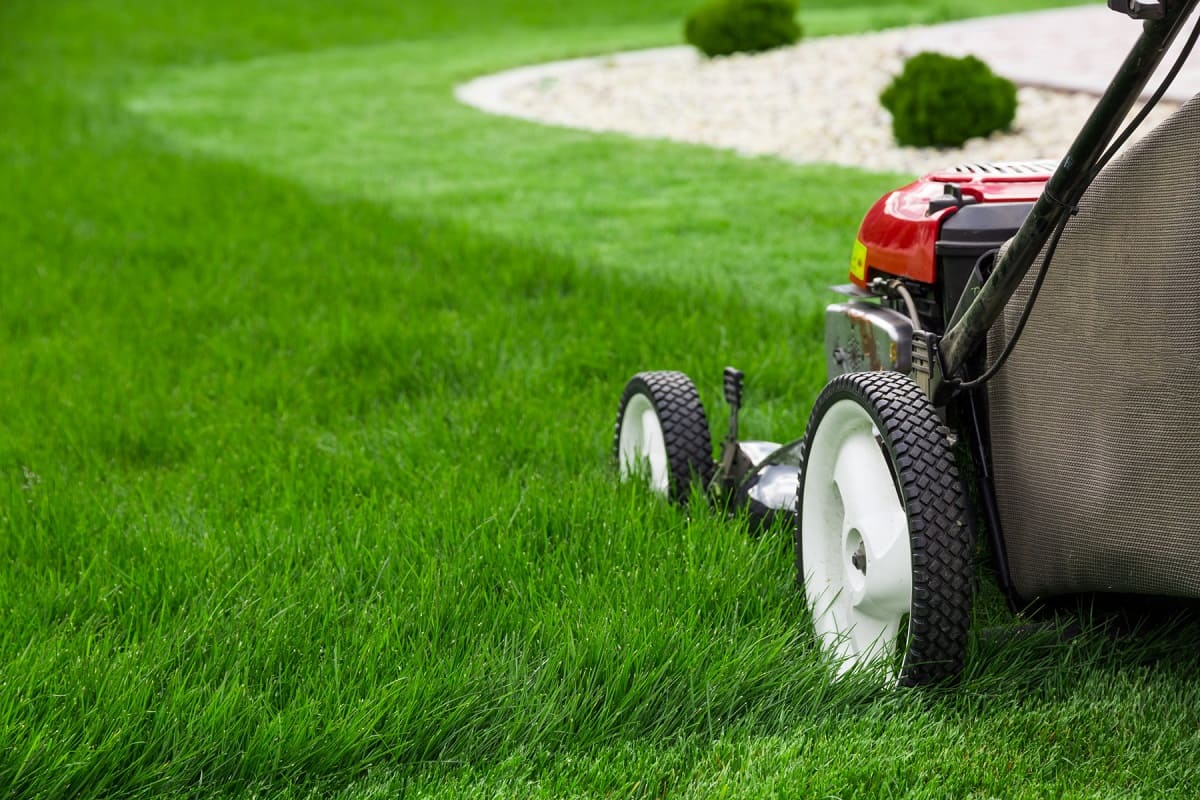

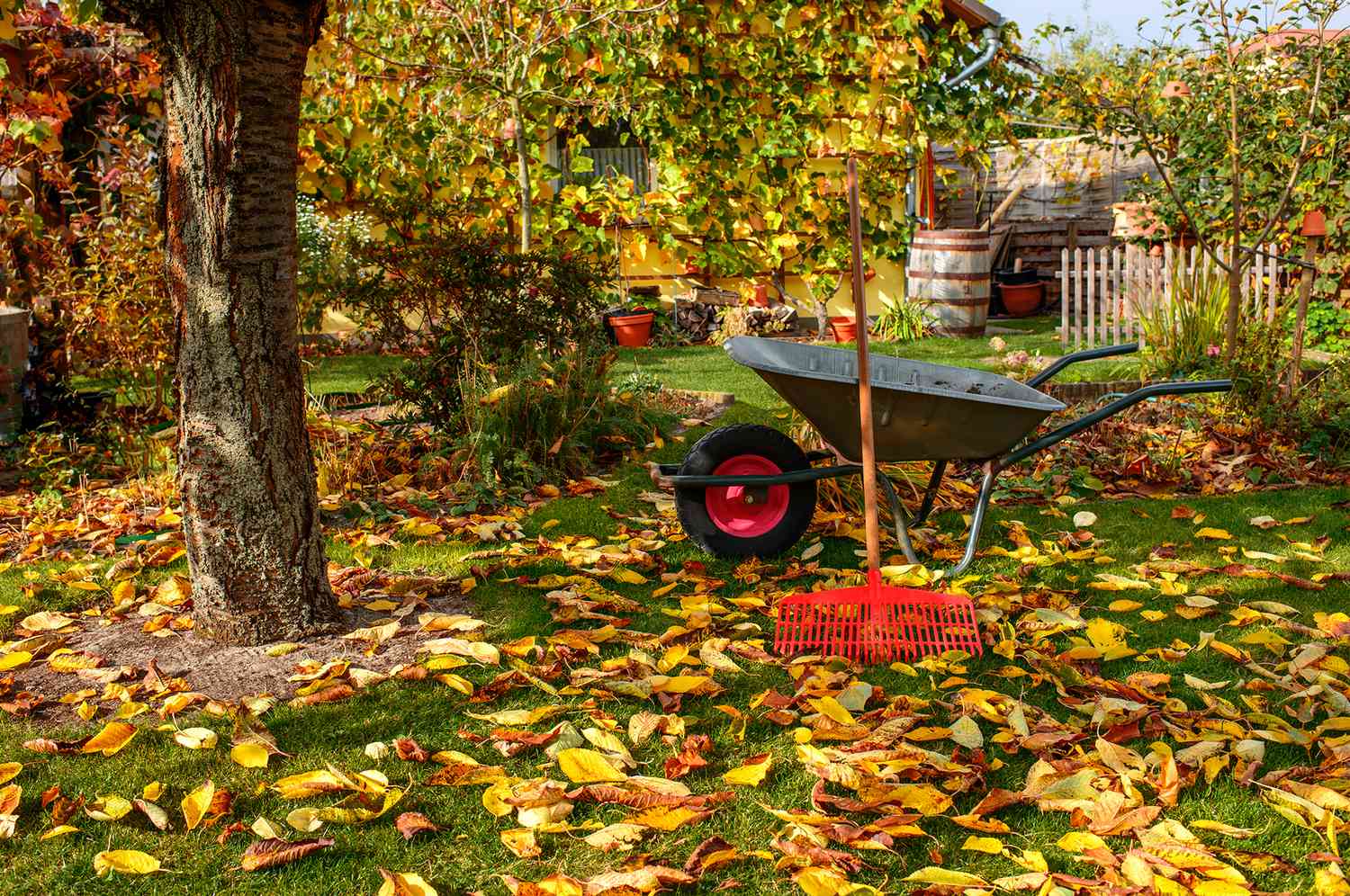



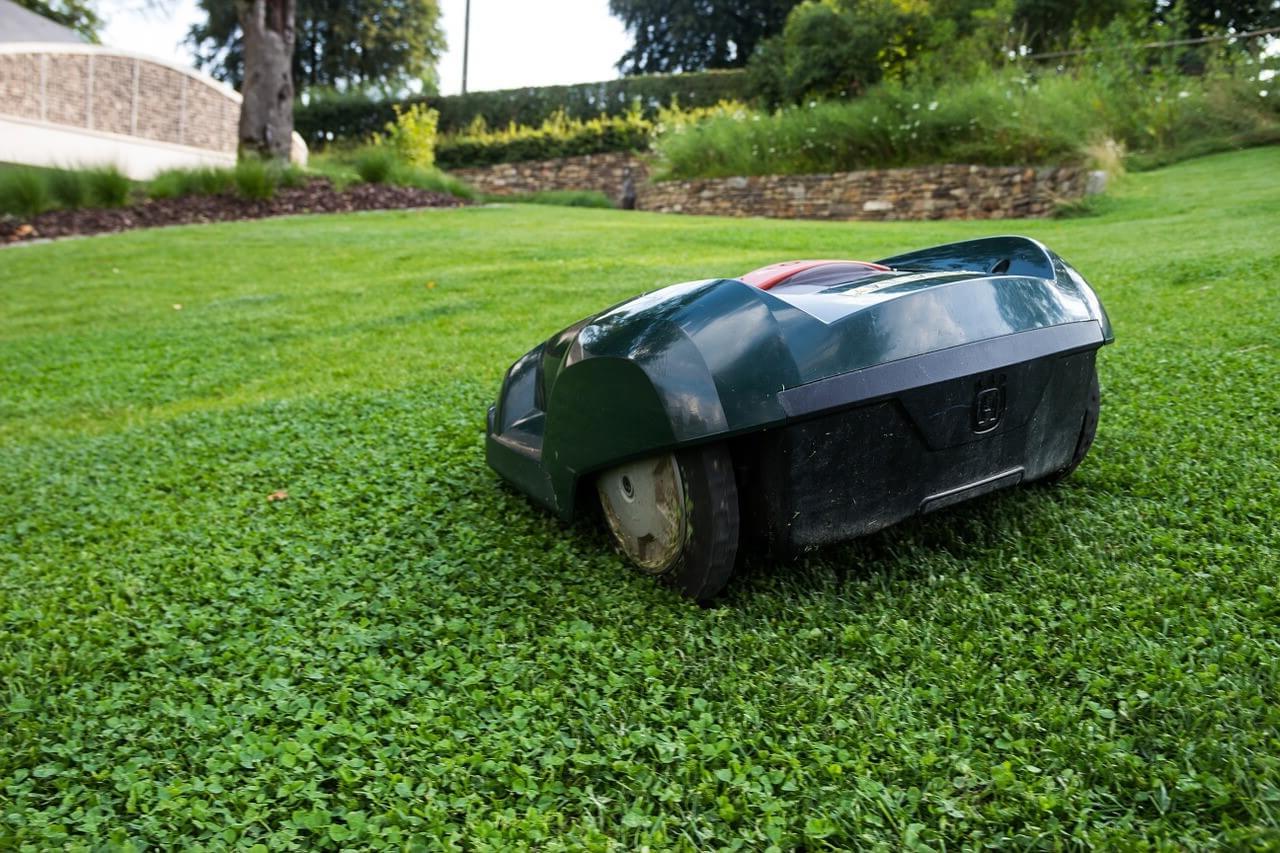
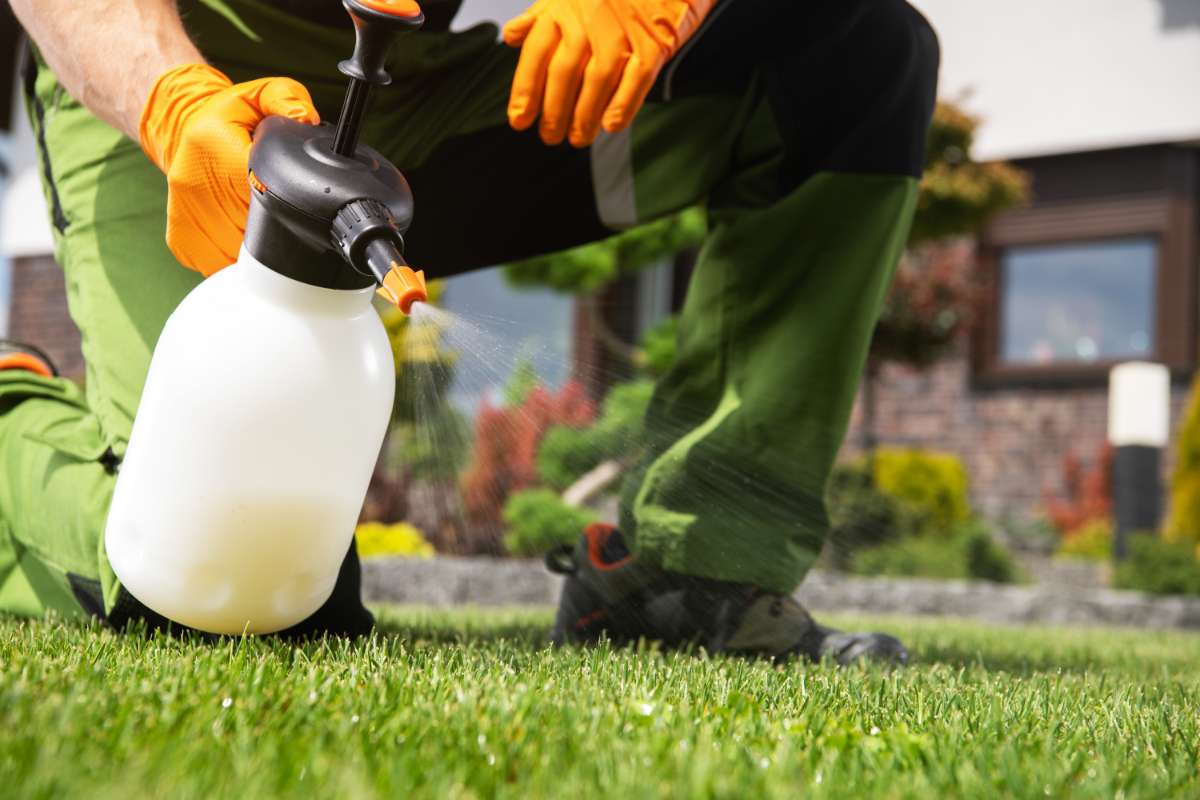


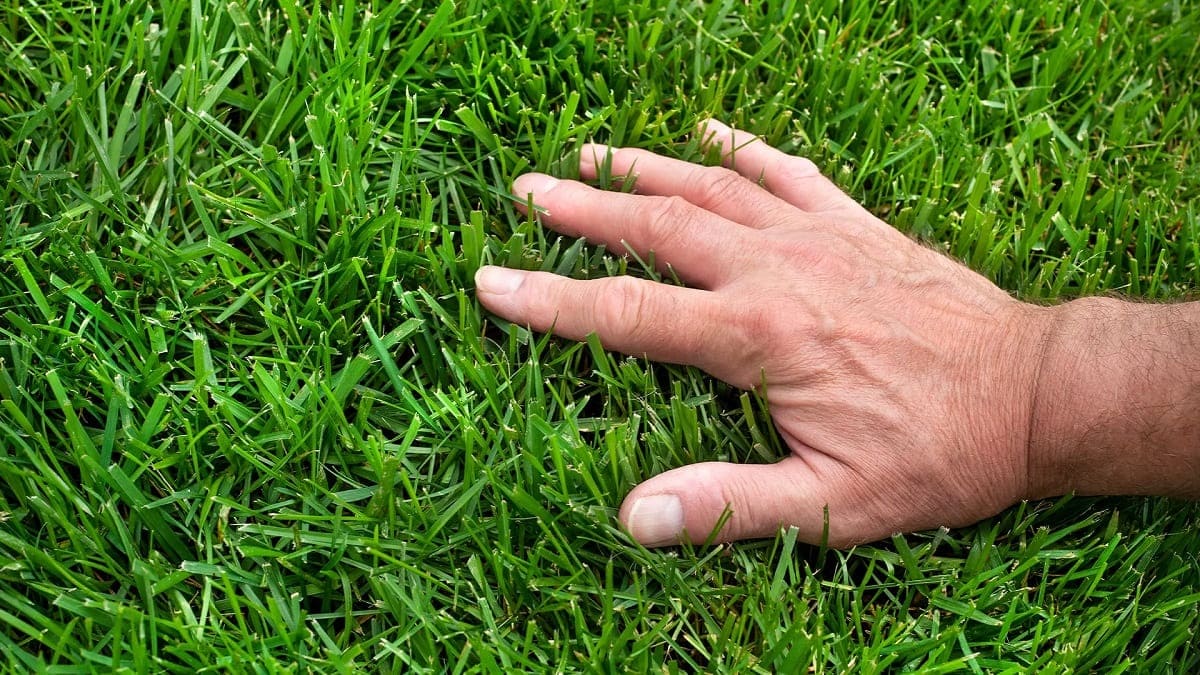


0 thoughts on “What Do Lawn Care Companies Spray On Grass”